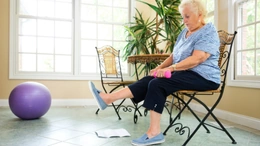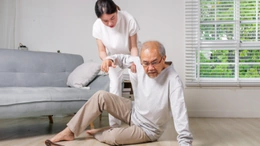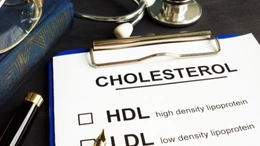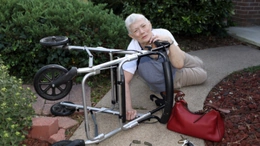Why Every Family Member Should Have A Medical ID: Benefits And Real-Life Stories

Emergencies don’t give warnings, and that’s when a medical identification (ID) tag can save a life. You might think it's only for those with serious conditions, but it matters for everyone, especially older adults. A small tag on your wrist can speak for you when you can’t.
You may never need it, but in one moment, it could save your life. For families managing heart issues, diabetes, or memory loss, it’s peace of mind on a chain.
This isn’t just a label, it’s protection. And behind every ID lies a real story. Here's why every loved one should have one before they need it.
Benefits Of Having A Medical ID For Every Family Member
You never know when an emergency will turn serious in seconds. A medical ID or medical alert tag gives fast facts when you're unable to speak. It's especially helpful for seniors who take daily medications or have long-term health issues. Whether at home, on a walk, or visiting a clinic, it keeps you safe.
Immediate Access To Medical Conditions And Allergies
When something happens quickly, such as a fall, a stroke, or an allergic reaction, every second counts. Within mere seconds, a medical alert tag provides emergency personnel with all the necessary information. It indicates your medical disorders, allergies, prescribed medicines, etc.
Faster Emergency Response And Accurate Treatment
In an emergency, you may not be able to speak. Maybe you’re unconscious, confused, or scared. But a medical alert tag does the talking for you. EMTs don’t need to search for your medical file or wait to contact someone.
They just read your tag, bracelet, or card and it tells them exactly what to do and what to avoid. This is especially important for seniors. Many take heart medicines, blood thinners, or have implants like pacemakers. That’s not something paramedics should discover the hard way.
Reduced Risk Of Misdiagnosis Or Wrong Medication
Wrong guesses in healthcare can be dangerous. Giving the wrong drug or missing a diagnosis can turn serious, fast. Medical alerts lower that risk. They give hospital staff the facts upfront. Doctors can avoid drugs you’re allergic to.
Nurses can double-check your condition before giving pain meds. It also helps in noisy or chaotic situations like accidents or public events. When you wear a medical ID, you remove the guesswork. You help doctors help you faster and more safely.
Critical For Seniors With Memory Loss Or Dementia
If you care for someone with Alzheimer’s or dementia, you know how fast things can change. One minute, they’re fine and the very next minute, they’re lost or in distress. A medical identification system gives first responders a clear way to identify them.
It can list their name, medical condition, and an emergency contact. That means no delays if they’re found wandering or confused. For seniors who can’t recall their medications or diagnoses, a simple ID can be their voice. It keeps them safe when they’re most vulnerable.
Provides Peace Of Mind For Caregivers
Caring for someone is a full-time job. It’s even harder when you’re not around. A medical alert tag gives caregivers peace of mind. You know your loved one has a way to communicate in a crisis. You know if something happens, responders won’t be in the dark.
Whether it's your child with asthma or your elderly parent with heart issues, their ID helps fill in the blanks. It’s a small thing, but it makes a big difference when you can’t be there.
Real-Life Impact Of Medical Identification Tags For Every Family Member
In many U.S. towns, medical alert tags are changing how emergencies are handled. They help EMTs, doctors, and even police respond quickly and correctly.
Seniors with heart conditions, memory loss, or special care needs benefit the most when every second counts; this tiny tag can truly protect a life.
Used By EMTs To Confirm Patient’s Condition In Real-Time
Emergency workers are trained to look for medical alerts first. That’s how they confirm what’s going on. If someone is found unconscious, they check the ID for answers. That’s how they find out if it’s a diabetic low, a seizure, or a heart condition. It helps them take action fast.
In many U.S. cities, EMTs have shared that IDs helped them avoid giving the wrong treatment. They didn’t have to wait for test results or family calls. The ID gave them the green light to act smart and fast.
Relied On In Assisted Living And Senior Care Centers
In U.S. senior care homes, staff often handle many residents with complex health needs. When emergencies happen, quick and clear information is key. That’s why many facilities encourage or require residents to wear medical alert tags.
These IDs help both new staff and emergency responders get fast info. If a resident falls or has a reaction, the ID tells them what to watch for. It’s also helpful when new staff join or if records aren’t nearby. It keeps things smooth, safe, and consistent across shifts.
Supported Law Enforcement In Reuniting Lost Individuals With Families
Some seniors, especially those with dementia, can wander. They may get lost while walking in a park or leaving home by mistake. A medical alert becomes vital in these moments. Police or bystanders can use the info on the ID to call a loved one.
It often includes a contact number, address, or a note that the person has memory issues. Law enforcement in many U.S. towns reports that medical alerts helped them bring seniors home safely, without having to wait for a report or broadcast alert.
Recommended By U.S. Healthcare Providers For Ongoing Patient Safety
Doctors, hospitals, and health groups across the U.S. recommend medical identification tags for patients with long-term conditions. You’ll often see this advice given during discharge from hospitals or after a new diagnosis.
Whether you’ve had a stroke, use an EpiPen, or have epilepsy, your provider may say, “You need a medical alert.” It’s even more common now with mobile health tech and wearables.
Some devices even link to digital health records. But even the simplest ID, a bracelet with basic facts, can be just as powerful.
Conclusion
You can’t plan for a health crisis, but you can be ready for one. A medical ID is a small step that makes a big difference for seniors and families. It gives peace of mind and quick answers when time matters most. If safety is the goal, this is where to start.






















